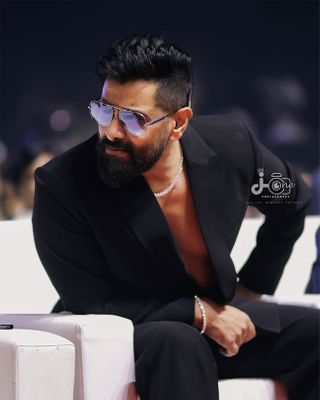
Exodus: Gods and Kings Movie Review
As a wise man once said, "not every film can be Gladiator". The 2000 Russell Crowe-starrer classic, directed by Ridley Scott, made period war films set in an ancient era cool, and also set the benchmark against which all such future films would be compared.
Exodus: Gods and Kings, also directed by Ridley Scott, tries so very hard to capture the glory of that film, but only ends up pulling a muscle in the process.
The film tells the story of Moses, a Hebrew-born Egyptian prince who leads the Hebrew slaves on a rebellion against his brother Ramses, the Egyptian Pharaoh. It also recounts the tale of the deadly plagues that struck Egypt during that period.
The problem with Exodus is not that it lacks appeal. On the contrary, there are moments of genuine intrigue and spark that keep you occupied. The very first battle scene, the first time Moses visits the slaves and his subsequent exile from Egypt, all of these scenes within the first hour or so are well filmed, engrossing and engaging to watch. But it's the subsequent hour and a half that plays a downer.
The sequences that follow after Moses's exile, his wanderings in the desert, his married life and the establishing of his direct hotline with God's messenger all lack the much-needed punch. Even his decision to return to Egypt is sudden, drastic and far from convincing. The plagues that follow make for great sequences visually, but not so much from the story point of view.
At the opposite end, Ramses gets very little importance as a character throughout the film. His insecurities and manic hunger for power are well documented towards the beginning of the film, but his character loses steam as the film goes on. His role is almost entirely reactionary to Moses's various strategic decisions and the plagues. The only actual decision that he makes throughout comes towards the very end, and once again, his motivation behind it is unclear at best.
The climax sequence, involving the parting of the Red Sea, ideally should've been the best scene of the film. But instead, it leaves a lot to be desired in terms of closing out the story. Speaking of leaving a lot to be desired, any character that isn't Moses, or at times Ramses, hasn't been developed enough to be convincing even as a human being. Most of them are caricatures, like sheep shepherded by Moses, no questions asked. What doesn't help is the fact that the film tells a very cliched story of brotherly betrayal and rivalry, one they've we've seen/heard a few dozen times before, the only difference being its biblical setting.
The one area where the film earns brownie points is its authentic look and stunning visuals. From the costumes to the looks of the characters to the sets, nothing looks out of place from the period. Cinematographer Dariusz Wolski makes the film look absolutely gorgeous, and the special effects are as good as any superhero could boast of. The plagues and the parting of the Red Sea are sequences that are particularly clap-worthy, with eye-popping effects.
Veteran director Ridley Scott seems to have adapted to the techniques of modern day filmmaking, as is apparent from both Exodus and Prometheus. But in the process, the director seems to have lost his magical touch, the thing that made him one of the most sought after directors in Hollywood. This is his third middling/mediocre effort in as many films. In Exodus, he seems too obsessed with the grandeur of the period, concentrating more on dazzling you with visuals rather than telling a great story. He starts off well, concentrating on his two leads and the ensuing power play. But he falters midway, instead choosing to make better use of 3D technology rather than making better use of his characters.
Christian Bale seems to be having a string of bad hair days in the film, sporting varying lengths of mops and beards. But there's no variation in the level of his performance as Moses. His intense performance is what guides the film through its many rough patches. He is unfalteringly good, but not great. It's the kind of performance that'll earn him praise, but not many award nominations. Joel Edgerton, as Ramses, is good but underutilized. He manages to effectively convey the unhinged nature of his character, but doesn't get much scope otherwise in a film that basically worships Moses.
The casting of Aaron Paul as Joshua is a decision that's much more interesting than the film itself. Despite a lengthy screen time, Paul gets to speak exactly 9 lines of dialogue, of which a majority are limited to 4-5 words. Needless to say, he's an underdeveloped character if I've ever seen one. The same goes for Ben Kingsley, who flits in and out of the screen like pigeons on top of a monument. He's there one second, and then missing in action for a long duration.
What the film lacks in ambition and storytelling, it tries to make up with dazzling visuals and special effects. This is the equivalent of jangling your keys in front of a toddler to distract him. But quite like the latter strategy, the film also proves to be successful sporadically, giving you enough distractions during its 2.5 hours running time. Go for it if you're up for some biblical mindless fun this weekend.









